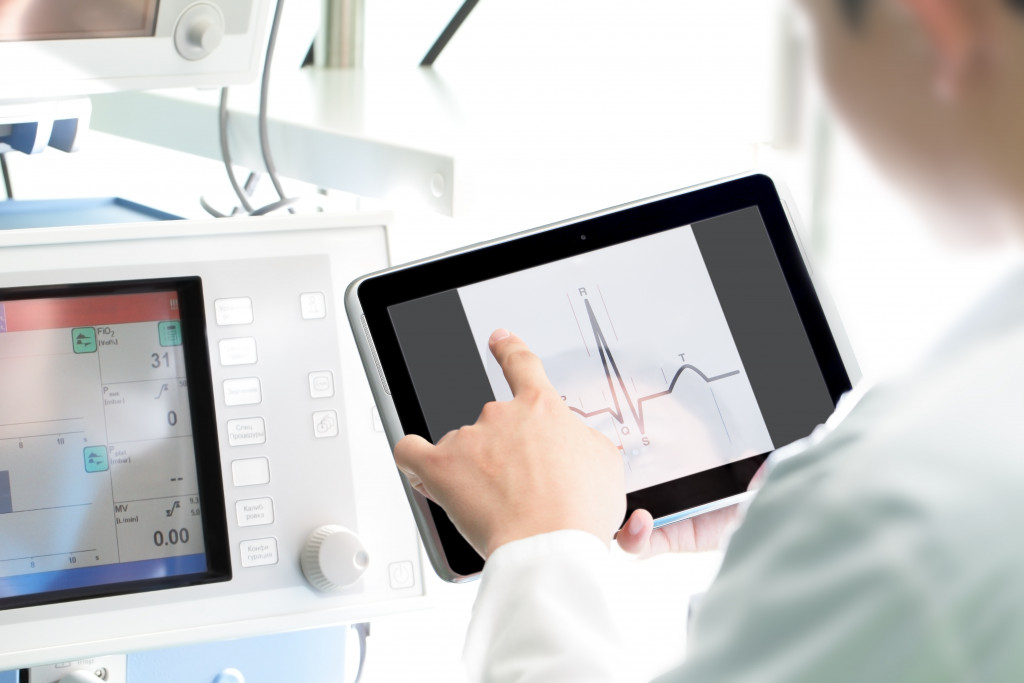There is no doubt that technology has had a profound impact on nearly every aspect of daily life. And the health care industry is no exception. In fact, over the last several years, technology has played an increasingly important role in helping to improve health outcomes for people all around the world. This is the reason why more healthcare institutions these days are leaning toward technology to help improve the quality of health care that they are offering to their patients.
One of the ways in which technology can be used effectively by healthcare institutions is through the use of telemedicine. Telemedicine, or remote medicine as it’s sometimes called, allows doctors and other medical professionals to monitor and treat patients who might not be able to visit them in person at a local hospital or clinic for whatever reason.
There are many advantages with telemedicine, including cost savings for both patients and providers alike and time saved when traveling long distances just so you can get treatment from an expert doctor elsewhere who has expertise on your specific condition/illness.
Aside from telemedicine, there are also innovations that have been invented to promote enhanced convenience for people. One great example is mild to moderate muscle pain treatment. In years past, you had to visit a specialist or take homemade remedies to alleviate muscle pain. Now, you can bring a portable massager wherever you go to help alleviate chronic pain. With that said, here are more ways that technology has helped people achieve better health outcomes today:

Enhanced patient engagement
These days, patients are more involved in the decision-making process than ever before. The evolution of technology has played a huge role in this because not only do patients have access to information about their condition and treatment options, but they can also get answers from doctors anywhere, anytime with the use of mobile devices like smartphones and tablets.
This is made possible through telemedicine which allows people to connect with their doctor virtually for follow-up exams or even simple questions that need to be answered by a medical professional quickly when something happens at home. As a result, people are able to get the care they need without having to go into a doctor’s office or wait for an appointment.
A more convenient way of tracking health outcomes
Another way technology has helped improve health outcomes is through the use of wearables and fitness trackers. These devices allow people to keep track of their physical activity, heart rate, sleep patterns, and more which can help them identify any areas where they might need to make changes in order to live a healthier lifestyle. And by being able to see this data compiled in one place, these devices make it easier for people to stick with their healthy habits because they can visually see how well they are doing.
Artificial intelligence and robotics in healthcare
Technology has even made its way into hospitals where patients now have access to advanced tools like robots that can perform surgeries or smart beds that can automatically adjust to a patient’s needs. These types of technology not only help to improve the quality of care that patients receive, but they also help to make the hospital experience less stressful for patients and their families.
Automation for quality care
These days, automation has allowed healthcare providers to focus on delivering quality care instead of spending time on administrative tasks. Automated systems can now track patients’ health data and provide feedback so that healthcare providers can make changes in their treatment plans as needed. This allows for a more personalized approach to care, which is essential for achieving better outcomes.
The Evolution of Technology and Healthcare
As technology continues to evolve, it is clear that it will play an increasingly important role in helping to promote better health outcomes for people all around the world. By embracing new technologies, the healthcare industry can help to improve the quality of care that patients receive while also making the hospital experience less stressful for everyone involved.
It is exciting to think about all the amazing things that technology will be able to do in the years ahead to improve the healthcare system. For example, it is now possible to use personalized data to create more effective treatment plans for patients. This means that each individual will be able to receive care that is tailored specifically for them, which is essential for achieving better outcomes.
By maximizing the benefits of technology, more people in today’s world will be able to achieve their health goals and live happier lives. Therefore, technology is an important tool that should be embraced by everyone who wants to improve their well-being.




